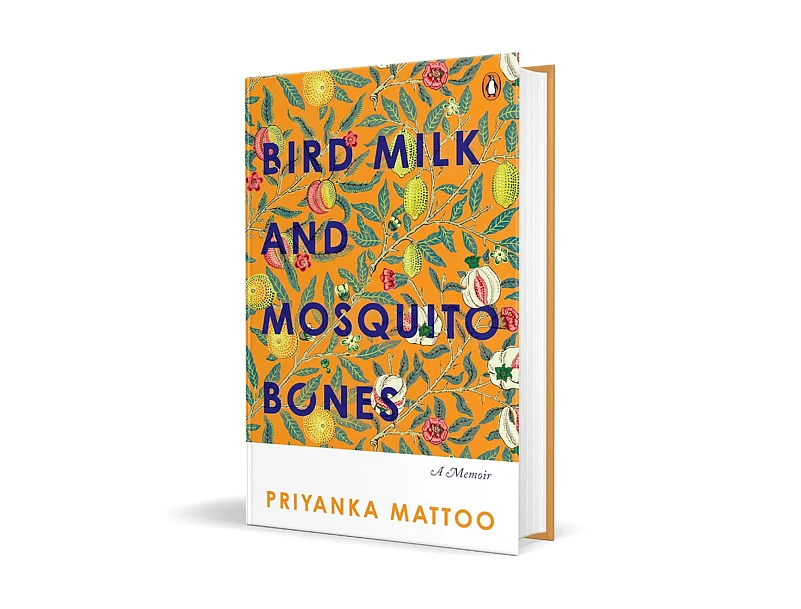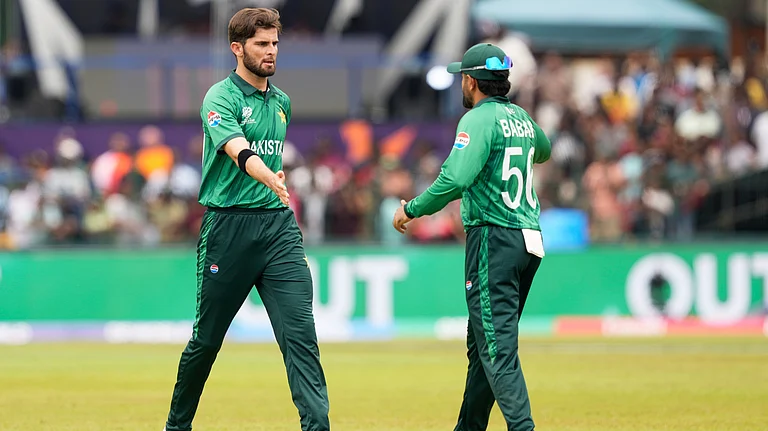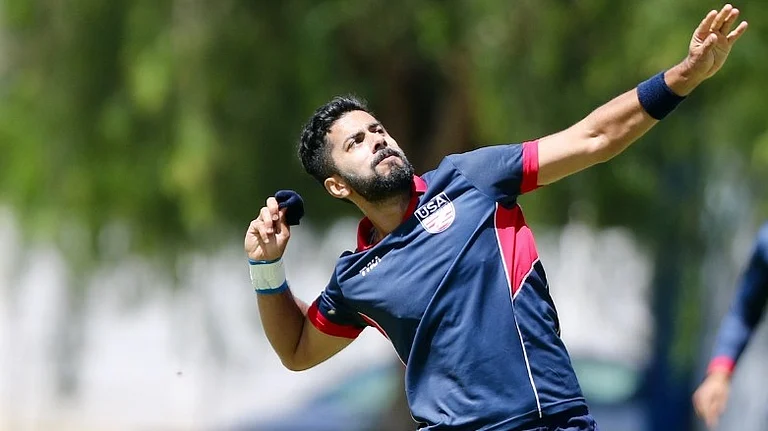Dotted Lines
2022
India is a woman’s body, her arms outstretched to hold her billion babies, Kashmir is the unruly forelock above her right temple. Or at least, that’s what I thought as a child, when my Nanaji took out his historical maps, pre-Partition and post-, to show me how we had been carved up. Since then, since the internet, I’ve zoomed in on that northwestern border countless times, tracing my fingers over the mess of dotted lines that vaguely indicate where I was born. If you log in from Pakistan, the Kashmir region is labeled as disputed. From India, it is a solid line, appearing firmly under Indian control.
I wonder if this regional shape-shiftiness contributes to my geographic malaise. I’ve moved so much that I can feel comfortable in most places but always thrum with the sense that I’m supposed to be somewhere else. I love it here: I have built a family, found some peace. But I also hate it here sometimes and feel stifled by the sameness. What a crazy place America is, where you can drive for three straight days and everyone’s still speaking En glish, and all were seemingly raised on the same episodes of eighties television. But they’ll tell me, in a lather, that the barbecue is dry here, whereas in another place it’s more ... wet. I stare blankly, feeling like an alien that’s landed on a well-meaning planet, one that believes that it is the beating heart of the universe.
My childhood may have been a little overstuffed, but I sometimes miss how exciting and surprising things used to be.
I miss being thrilled and consumed by the strangeness of an entirely new thing. I feel fortunate to have made my way to stability, but it means an unsettling similarity of routine. Still, every once in a while, something does break through the comfortable monotony of my American life, and my body is restless: a Great Passion, something that possesses me, infecting my thoughts while I’m racing to meet a deadline or pretending to listen to my children.
This time, it’s a song called “Pasoori,” by Ali Sethi. It’s recommended to me by the music app on my phone, and from the first note I feel like I’ve known it forever— a traditional raga laid over a beat that sounds South Asian, Middle Eastern, and ... is that reggaeton, all at once? The anguish in Ali’s rich voice is so stirring that even before I can make out all the words, I know what it’s about: a longing for a love you can never really have. Ali belts out a line about drinking down a destructive love, like poison. Shae Gill, his raspy-voiced partner in this duet, hopes his love breaks his heart.
“It’s my favorite genre,” says my friend Iva. “A love song that sounds like a threat.” The song reminds me of a former colleague who set fire to a Duraflame log and placed it in the back seat of her ex-boyfriend’s car. She watched it from the opposite sidewalk, and it was said that she’d calmly smoked several cigarettes while it burned. I’m still dying to know what he did to deserve it, but “Pasoori” would have been the perfect soundtrack. I share and forward, share and forward, obsessively listening to it on loop, until I track down Ali in New York and ask if we can hop on a video WhatsApp— official communication tool of the global diaspora— to talk about it.
I need to know more about the incubation and birth of the song, and I need to connect with the person who has made me feel this way.
Ali was born in Lahore— not two hundred miles from my Srinagar— in the 1980s, in a family of dissenting journalists and publishers. His parents’ home was full of jail-going writers and activists. His mother played a lot of Sufi music to counteract interpretations of Islam that she felt were making the rounds at the time. A parent- pleasing, eldest- child overachiever, he sang traditional ghazals to impress his parents’ friends and to “hypnotize [his] bullies at school.” In his early teens, he decided he wanted to know more about how the music worked: how did the great qawwals go off on mesmerizing riffs, weaving perfectly pleasing, seemingly unplanned patterns of melody and rhythm? How could they be so wild and free (which he secretly wanted to be) while remaining rigorous and rule- bound, as society dictated? It was a paradox that held some kind of key for him, and, ever a model student, he spent the next fifteen years training with traditional singers to grasp it.
As we talk, we laugh at our instant intimacy— Ali mentions that we look related, and we really do; he shares pictures of an aunt who could have been one of mine. But the closer tie is that we both grew up as bookish older siblings who strove for one thing while wanting another. We may both have thought our relationship to art an intellectual pursuit— me questing to read every word that had been published, he studying centuries of music under the most traditional of tutors.
**Excerpted With Permission from Penguin Random House India**





















